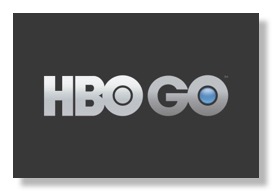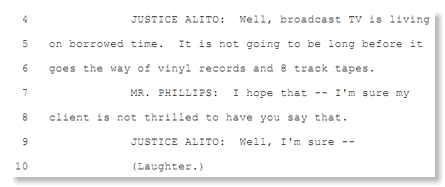HBO & CBS: Enabling Cutting Both the CATV and Spectrum "Cord"

Even major NAB member CBS is jumping on the bandwagon of alternatives to spectrum! Today they announced CBS All Access:
“a new digital subscription video on demand and Nielsen-measured live streaming service for the CBS Television Network. CBS All Access will offer subscribers thousands of episodes from the current season, previous seasons and classic shows on demand, as well as the ability to stream local CBS Television stations live in 14 of the largest U.S. markets at launch”.
Since the end of WWII broadcast over-the-air (OTA) TV has been both a large spectrum user and a huge player in spectrum regulation. When I joined FCC in 1979, we were at the end of a spectrum policy era in which the TV broadcasters, Motorola, and AT&T were the key players and virtually dictated how spectrum would be divided between their constituencies. Now Motorola and AT&T are a shadow of their former selves and perhaps the time has come for the TV broadcasters to “exit left” from the spectrum policy dictating business.
Sources have told us that the early drafts of the National Broadband Plan pointed out that when 50+ Mbps broadband becomes a universal service-like national norm - something that is critical to US society and economy for reasons not directly related to spectrum policy, then spectrum for OTA TV in urban areas will no longer be important since the content can be easily distributed over the broadband. Now some will ask about the economically disadvantaged - a real concern. But is allocating 100s of MHz and pumping megawatts in the ether the only way to deal with universal access to “free TV”? Universal access could also be handled by providing Internet based distribution of “basic video” - the present “free TV” - on either a Universal Service Fund-like model or via a freemium pricing model where basic video is free over broadband and higher tier services are priced separately, either in packages or individually. You will not find any such discussion in the published NBP. It was too controversial and pressure from the Hill resulted in its deletion as a topic.
Recall the Justice Alito 2012 quote shown above in a dialogue with Fox’s lawyer at the Supreme Court. Elected officials, FCC staff, and even FCC commissioners can not be as candid as Justice Alito who has life tenure. Maybe OTA TV will be here forever, but shouldn’t FCC and the spectrum policy community consider other alternatives?
The spectrum held by TV broadcasters today has huge economic value. Without worrying about issues of “unjust enrichment” we should let the broadcasters recoup that market value by programs such as the incentive auction so that the spectrum goes to its best uses - not necessarily the CTIA membership. The present OTA broadcasters will thus be compensated and the political process will not have to deal with determining fair compensation or the nuances of § 304. But the main reason OTA broadcasters use spectrum and megawatts of RF is get “must carry” rights to demand compensation from MVPD operators. The vast majority of US household simply do not watch OTA signals directly, although NAB and CEA can’t agree on the details of the data. There must be a better way!
We also note that this year HBO and Game of Thrones dominated Emmy nominations. Here's how the broadcast networks stacked up:
- CBS – 47 nominations
- NBC – 46 nominations
- ABC – 37 nominations
- PBS – 34 nominations
- FOX – 18 nominations
And here's the list of non-OTA leaders
- HBO – 99 nominations
- FX Networks – 45 nominations
- Showtime – 24 nominations
- Comedy Central – 21 nominations
- Lifetime – 17 nominations
- FOX/NatGeo – 12 nominations
Notice a trend?
An Incorrect NerdAlert Prediction from 11/13




![Validate my RSS feed [Valid RSS]](valid-rss-rogers.png)

